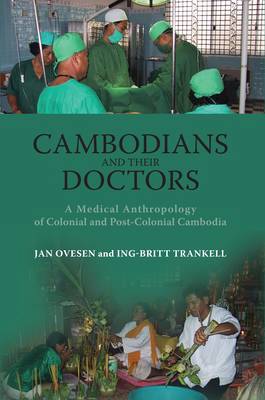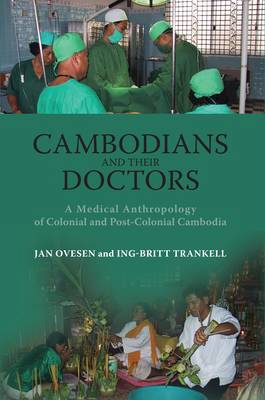
- Afhalen na 1 uur in een winkel met voorraad
- Gratis thuislevering in België vanaf € 30
- Ruim aanbod met 7 miljoen producten
- Afhalen na 1 uur in een winkel met voorraad
- Gratis thuislevering in België vanaf € 30
- Ruim aanbod met 7 miljoen producten
Zoeken
Cambodians and Their Doctors
A Medical Anthropology of Colonial and Post-Colonial Cambodia
Jan Ovesen, Ing-Britt Trankell
€ 117,95
+ 235 punten
Omschrijving
At face value, this book is about medicine in Cambodia over the last hundred years. At the same time, however, by using "medicine" (in the sense of ideas, practices, and institutions relating to health and illness) as a prism through which to view colonial and post-colonial Cambodian society more generally, it offers an historical and contemporary anthropology of the nation of Cambodia.
Rich in ethnographic detail derived from both contemporary anthropological fieldwork and colonial archival material, the study is an account of the simultaneous presence in Cambodia of two medical traditions: the modern, biomedical one first introduced by the French colonial power at the turn of the twentieth century, and the indigenous Khmer health cosmology. In their reliance on one or the other of the two traditions, to a large extent the Khmer people have been concerned about finding efficient medical treatment that also adheres to social norms (not least the emphasis on the morality of social relations). This concern is also evident in the prevailing medical pluralism in Cambodia today. The authors trace the interaction (and lack thereof) between these two traditions from the French colonial period via the political upheavals of the 1970s through to the present day. The result is more than a work on medical anthropology; this is a key text that also makes a significant contribution to the anthropological study of Cambodian society at large and will be an important resource for development planners and aid workers in medical and related fields.Specificaties
Betrokkenen
- Auteur(s):
- Uitgeverij:
Inhoud
- Aantal bladzijden:
- 336
- Taal:
- Engels
- Reeks:
- Reeksnummer:
- nr. 117
Eigenschappen
- Productcode (EAN):
- 9788776940577
- Verschijningsdatum:
- 30/04/2010
- Uitvoering:
- Hardcover
- Formaat:
- Genaaid
- Afmetingen:
- 152 mm x 228 mm
- Gewicht:
- 589 g

Alleen bij Standaard Boekhandel
+ 235 punten op je klantenkaart van Standaard Boekhandel
Beoordelingen
We publiceren alleen reviews die voldoen aan de voorwaarden voor reviews. Bekijk onze voorwaarden voor reviews.











